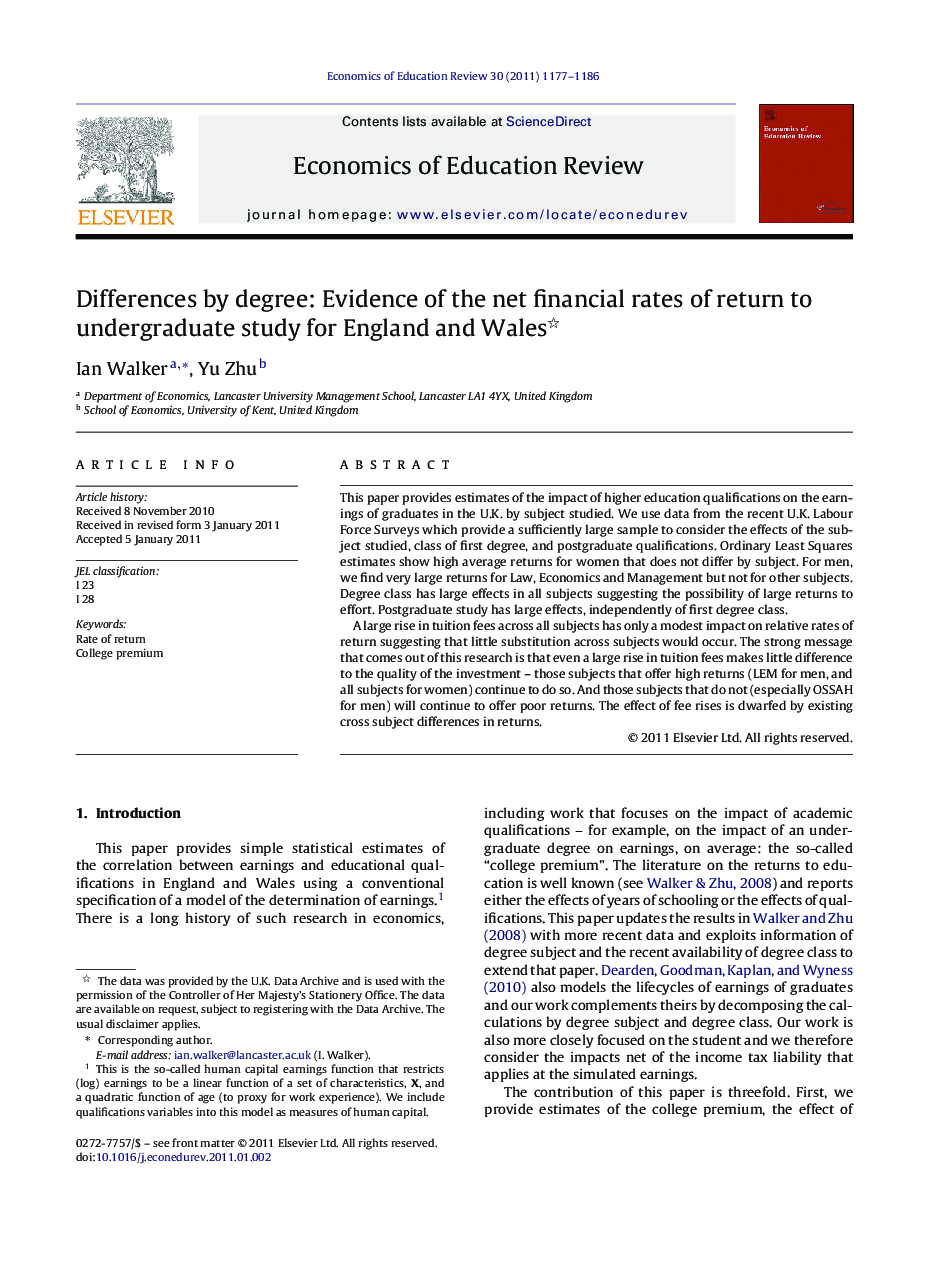| Article ID | Journal | Published Year | Pages | File Type |
|---|---|---|---|---|
| 354516 | Economics of Education Review | 2011 | 10 Pages |
This paper provides estimates of the impact of higher education qualifications on the earnings of graduates in the U.K. by subject studied. We use data from the recent U.K. Labour Force Surveys which provide a sufficiently large sample to consider the effects of the subject studied, class of first degree, and postgraduate qualifications. Ordinary Least Squares estimates show high average returns for women that does not differ by subject. For men, we find very large returns for Law, Economics and Management but not for other subjects. Degree class has large effects in all subjects suggesting the possibility of large returns to effort. Postgraduate study has large effects, independently of first degree class.A large rise in tuition fees across all subjects has only a modest impact on relative rates of return suggesting that little substitution across subjects would occur. The strong message that comes out of this research is that even a large rise in tuition fees makes little difference to the quality of the investment – those subjects that offer high returns (LEM for men, and all subjects for women) continue to do so. And those subjects that do not (especially OSSAH for men) will continue to offer poor returns. The effect of fee rises is dwarfed by existing cross subject differences in returns.
Research highlights► High returns for women in all subjects and for Law, Economics/Management for men. ► Degree class and postgraduate study has large effects in all subjects. ► A large rise in tuition fees has only a modest impact on relative returns. ► Even a large rise in tuition fees makes little difference to the investment. ► The effect of fee rises is dwarfed by existing cross subject differences in returns.
